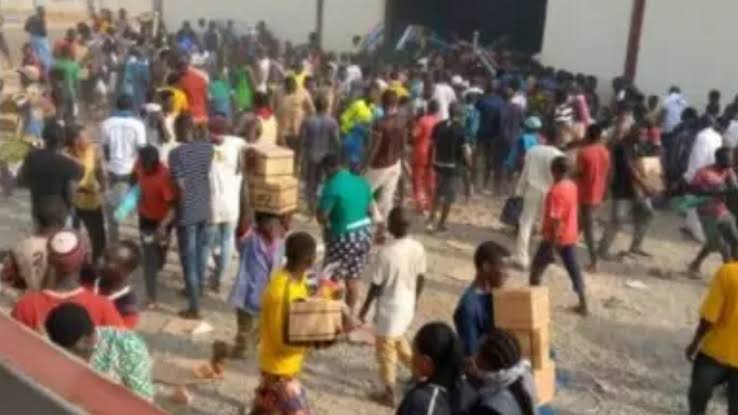Tragedy Strikes Twice: 39 Dead in Abuja and Anambra Food Stampedes.
Tragedy Strikes Twice: 39 Dead in Abuja and Anambra Food Stampedes—A Nation’s Hunger Exposed
By Achimi muktar
When Hunger Turns Deadly
A harrowing weekend in Nigeria saw the tragic deaths of at least 39 people during stampedes at food distribution events in Abuja and Anambra State. The incidents, which claimed 10 lives in the Federal Capital Territory and 29 in Anambra, have shocked the nation and underscored the dire economic straits driving citizens to desperation.
This dark chapter unfolded mere days after a similar tragedy in Ibadan, Oyo State, where 35 children lost their lives at a funfair. The scale of loss has left Nigerians reeling, raising pressing questions about safety protocols and systemic poverty.
A Morning of Chaos in Abuja
In the heart of Maitama, Abuja, an annual charity outreach at the Holy Trinity Catholic Church turned deadly early Saturday. Crowds gathered before dawn, many traveling from distant communities like Mararaba, Nyanya, and Mpape, hoping to secure food and other necessities. Eyewitness John recounted the tragic turn of events:
“Initially, everyone was orderly. But as the day broke and the crowd doubled, desperation set in. Pushing and shoving began, and soon cries for help rang out as people were trampled.”
Reverend Father Mike Umoh of the Catholic Secretariat of Nigeria expressed grief over the incident, emphasizing the importance of better crowd control in future outreach programs.
The FCT Police Command confirmed 10 fatalities and eight injuries, with victims rushed to nearby hospitals. The tragedy laid bare the growing hunger and desperation in the country—a sentiment echoed by humanitarian agencies and church leaders.
Panic and Despair in Anambra
The tragedy in Anambra mirrored Abuja’s grim tale. In Okija’s Amanranta community, chaos erupted at the gates of the Obijackson Centre during a charity event organized by the Obijackson Foundation. The annual distribution of rice, oil, and cash—a Christmas tradition—descended into pandemonium as thousands scrambled to gain entry.
Eyewitnesses described the scene as heartbreaking. Shoes and slippers lay scattered amid the carnage. One witness recalled a mother who died with her baby strapped to her back: “The child survived, but the husband’s anguish was unbearable.”
Despite the fatalities, the distribution continued, with organizers trying to manage the surging crowd. Police reports initially confirmed three deaths but eyewitness accounts suggested far more. A government official, speaking anonymously, put the death toll at 29, with many others in critical condition.
A Nation Mourns
President Bola Tinubu canceled all public engagements on Saturday, including his scheduled attendance at the Lagos Boat Regatta, as a mark of respect for the victims. His spokesperson, Bayo Onanuga, conveyed the president’s condolences and urged for immediate reforms in crowd management.
Peter Obi, the Labour Party’s 2023 presidential candidate, also lamented the tragedies, attributing them to systemic failures and escalating poverty. “This is a stark reflection of the harsh economy driving people to desperate measures,” he said in a statement.
Calls for Accountability and Reform
The Inspector-General of Police, Kayode Egbetokun, has launched investigations into the stampedes, emphasizing the need for organized frameworks to manage large-scale charity events. He warned that negligence in planning such activities could lead to criminal charges under Nigeria’s Penal and Criminal Codes.
The National Emergency Management Agency (NEMA) echoed this sentiment. Director-General Zubaida Umar urged event organizers to prioritize safety and implement stringent crowd control measures to prevent similar tragedies.
A Wake-Up Call for Nigeria
As the nation mourns, these heartbreaking incidents shine a spotlight on the urgent need to address systemic poverty and hunger. While charity events aim to alleviate suffering, the lack of planning has turned acts of goodwill into sources of grief.
For many Nigerians, the question lingers: How many more lives must be lost before tangible solutions emerge? Until then, the cries from Abuja, Anambra, and Ibadan will remain a haunting reminder of a nation’s struggles—and its unyielding hope for change.



















